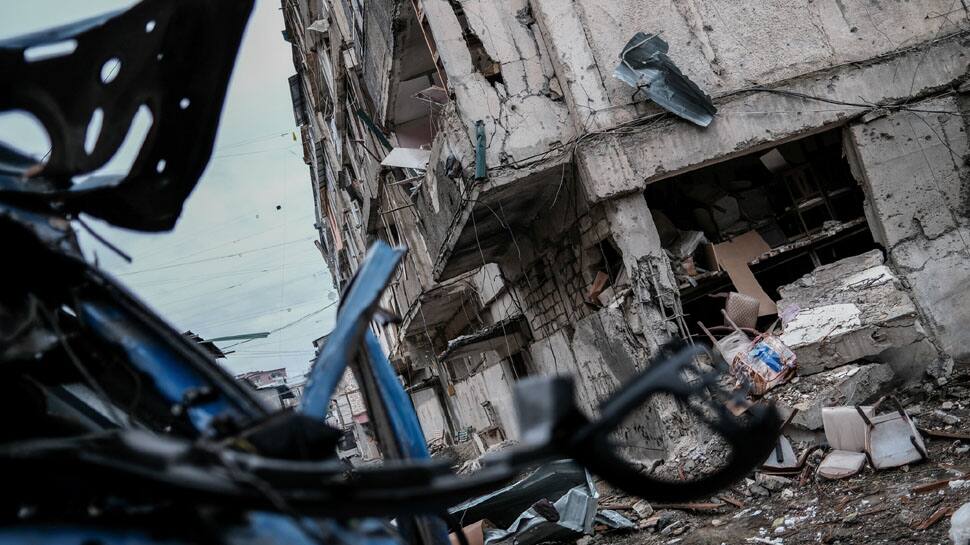
The war between Armenia and Azerbaijan over Nagorno-Karabakh continued for the tenth day on Tuesday. The fighting for the region began on September 27 and has escalated to its deadliest level since the 1990s. Fight for Nagorno-Karabakh, which belongs to Azerbaijan under international law but is populated and ruled by ethnic Armenians.
Ethnic Armenian officials in the Nagorno-Karabakh enclave said on Tuesday that 21 more military personnel had been killed in fighting with Azerbaijan, bringing the total number of military deaths to 244 since the war broke out. The fighting has reached its worst level since the 1990s, when some 30,000 people died.
Syria blames Turkey: Syrian President Bashar al-Assad accused his Turkish counterpart Tayyip Erdogan of being the main instigator of the deadliest fighting between Armenian and Azeri forces for more than 25 years. In an interview published Tuesday that is likely to exacerbate international friction over the fighting in the South Caucasus region, Assad also said that militants from Syria were being deployed to the conflict zone.
Turkey has denied participation in the fighting in and around Nagorno-Karabakh, a mountainous enclave that belongs to Azerbaijan under international law but is ruled by ethnic Armenians, and has rejected accusations of having sent mercenaries to the area.
But Assad told Russia’s RIA news agency: “He (Erdogan) … was the main instigator and initiator of the recent conflict in Nagorno-Karabakh between Azerbaijan and Armenia.”
Reiterating the accusations first made by French President Emmanuel Macron that Turkey has sent Syrian jihadists to fight the conflict, Assad said: “Damascus can confirm this.” Assad appeared, however, not to provide proof of his accusation. Ankara did not immediately respond, but described similar accusations as part of Armenia’s attempts to create “dark propaganda” about Turkey.
The fighting that broke out on September 27 has raised concerns that a broader conflict could break out, dragging down Turkey, which has expressed solidarity with Azerbaijan, and Russia, which has a defense pact with Armenia. Azerbaijan and Armenia have accused each other of starting the fighting, the latest in a long-running conflict over Nagorno-Karabakh that is closely watched abroad in part because of its proximity to pipelines that carry Azerbaijani oil and gas to Europe.
More than 250 people have been reported killed, and many more are feared to have been killed, in clashes that have been fought with artillery, drones and tanks. The parties have also released images of devastated and burning buildings, and of people protecting themselves during heavy shelling. Azerbaijan says Azerbaijani cities outside Nagorno-Karabakh have been attacked, and Armenia has accused Azerbaijan of targeting densely populated areas. Both deny having targeted civilians.
Turkey criticizes ceasefire efforts to end conflict: Turkish Foreign Minister Mevlut Cavusoglu on Tuesday criticized international efforts to address the conflict between Azerbaijan and Armenia in the Nagorno-Karabakh region, saying they had achieved nothing in nearly 30 years.
Turkey has condemned what it calls the Armenian occupation of Azerbaijani lands and has promised full solidarity with its ethnic Turkish relatives in Azerbaijan. Ankara has repeatedly called on Yerevan to withdraw its troops from Nagorno-Karabakh. Speaking during a visit to the Azeri capital Baku on Tuesday, Cavusoglu said that a ceasefire alone would not be enough to end the fighting.
“We look at the calls coming in from all over the world, and it’s an ‘immediate ceasefire’. And then what? There was a ceasefire until now, but what happened?” Cavusoglu said in comments broadcast on Turkish television. “There may be a ceasefire, but what will the result be?” added. “Can you tell Armenia to withdraw from Azerbaijani lands immediately? Can you find a solution for it to withdraw? No, they are the same calls for 30 years.”
Last week, France, co-chair of the Minsk group that mediates the conflict together with Russia and the United States, proposed a new initiative to restart the Baku-Yerevan talks. But those were hampered when Azerbaijani President Ilham Aliyev said Baku needed guarantees to consider a truce. Cavusoglu also dismissed the efforts, saying that they could not treat Armenia and Azerbaijan as equals, as that would amount to “rewarding the occupier”. “The whole world now needs to understand that this cannot go on like this,” he said.
Russia says Nagorno-Karabakh risks becoming a launching pad for terrorists: Russia’s SVR Foreign Intelligence Service head Sergei Naryshkin warned that Nagorno-Karabakh risks becoming a launching pad for terrorists that they could enter Russian territory, Interfax news agency quoted him as saying on Tuesday. Naryshkin said he hoped that Armenia and Azerbaijan would return to the negotiating table on the region.
Ceasefire appeals: Ceasefire calls from the United States, Russia and France have failed to stop the fighting. The three countries have for years led mediation efforts in a conflict that erupted when the Soviet Union collapsed and has killed some 30,000 people. US Undersecretary of State Stephen Biegun spoke separately with the foreign ministers of Azerbaijan and Armenia on Monday and urged the parties to agree to an immediate ceasefire and to resume negotiations.
The United States, Russia and France issued a new condemnation of the violence on Monday. Turkish Foreign Minister Mevlut Cavusoglu was due to hold talks with Azerbaijani President Ilham Aliyev in Baku on Tuesday. Nagorno-Karabakh officials said on Monday that 223 of their military and 19 civilians had been killed since the latest fighting began. Many more people have been injured.
The Azeri prosecutor’s office said on Monday that 25 Azeri civilians had been killed since the fighting began. Azerbaijan has not provided details on the military casualties. Azerbaijan did not immediately release an update on the fighting on Tuesday. But its Foreign Ministry accused Canada of “double standards” for the decision to suspend exports of military technology on accusations that the equipment was used by Azeri forces in the Nagorno-Karabakh conflict.
(with contributions from agencies)
.